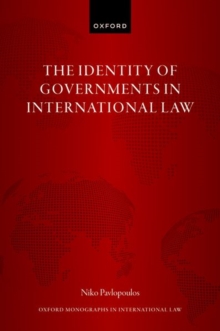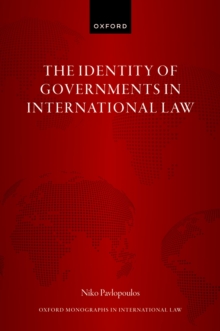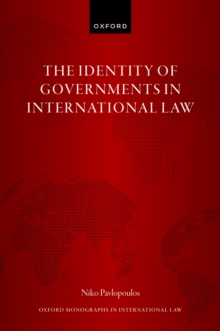
The Responsibility of States for International Crimes Paperback / softback
by Nina H. B. (, Senior Legal Adviser for the Office of the Prosecutor, Special Court for Si Jørgensen
Part of the Oxford Monographs in International Law series
Paperback / softback
Description
The Responsibility of States for International Crimes focuses on the concept of state criminality which gained support following the First World War, but was pushed into the background by the development of the principle of individual criminal responsibility under international law after the Second World War.
The concept became the topic of debate and controversy upon its conclusion in Part 1 of the International Law Commission's Draft Articles on State Responsibility adopted on first reading in 1980. The book considers the history and merits of a concept which, it is argued, is currently on the threshold between lex ferenda and lex lata and has a place and existence in international law independent from the Draft Articles on State Responsibility.
It is divided into five parts. Part I consists of an historical introduction to the concept which deals with the issue of international accountability following the First and Second World Wars and goes on to trace efforts to codify and develop the law relating to international criminal responsibility.
In Part II, the concept is analysed in accordance with a 'criminal organization model' and a 'corporate crime model' and against this background it is to be found juridically sound.
In Part III, eight candidate criteria and indicia are discussed which form a conceptual differentiation between state crimes and other wrongful acts or 'delicts'.
On the basis of this analysis it is submitted that the concept is an emergent general principle of international law. Part IV considers the problems and modalities of punishing a state and addresses the question of an institutional framework for criminal responsibility on states.
The issues discussed in Part IV are found to confirm the concept's status as an emergent general principle of international law. An investigation into the status of the concept in contemporary international law is undertaken in Part V with particular emphasis on the 1948 Genocide Convention and the 1996 Judgement of the International Court of Justice in the Case Concerning the Application of the Convention on the Prevention and Punishment of the Crime of Genocide (Preliminary Objections) between Bosnia-Herzegovina and Yugoslavia.
The author concludes that the concept is now emerging as a customary international law.
Information
-
Out of stock
- Format:Paperback / softback
- Pages:372 pages
- Publisher:Oxford University Press
- Publication Date:13/02/2003
- Category:
- ISBN:9780199258000
Information
-
Out of stock
- Format:Paperback / softback
- Pages:372 pages
- Publisher:Oxford University Press
- Publication Date:13/02/2003
- Category:
- ISBN:9780199258000










